Dev Sahab’s Unwavering Determination & The Divine Adaptation
Transforming a Literary Gem for the Masses Derived from the universally revered 1958 novel by R.K. Narayan, “Guide” embarked on a journey of artistic rebirth. While the English version by Pearl S. Buck and Tad Danielewski met with disappointment, Dev Sahab decided to revamp the project and invested heart and soul into the Hindi adaptation. His endeavor bore fruit, for he and his brother, Vijay Anand presented the narrative through the lens of the common man. With painstaking precision, they breathed life into the characters, rendering them relatable and endearing to both the critics and the masses.
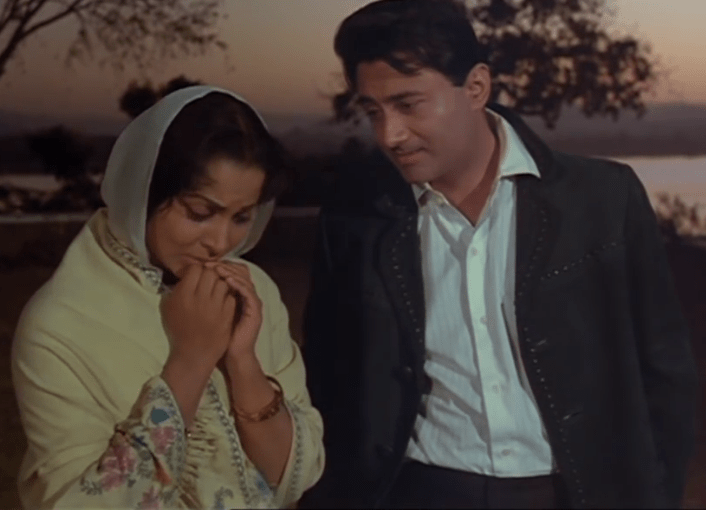
“Guide” (1965)
DEV ANAND’s indomitable will to bring ‘Guide’ to life and make it resonate with the masses is a testament to his unwavering commitment to delivering quality within the popular mainstream. His desire to offer excellence in storytelling shines through his relentless pursuit of success with this iconic film.
Hindi Version, Adaptation, and Direction
Vijay Anand’s Cinematic Brilliance Adapted and helmed by the genius Vijay Anand, “Guide” emerged as a testament to his profound understanding of R.K. Narayan’s novel.
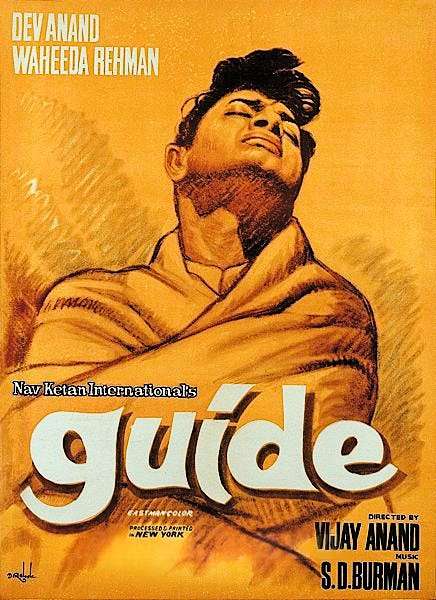
Vijay Anand expertly captured the nuances and expressions of Raju, skillfully infusing them into the life of an ordinary man, all while preserving Dev Anand’s impeccable style. His keen comprehension of the characters breathed an exceptional level of authenticity into the film, rendering it truly commendable.
The Philosophical Powerhouse
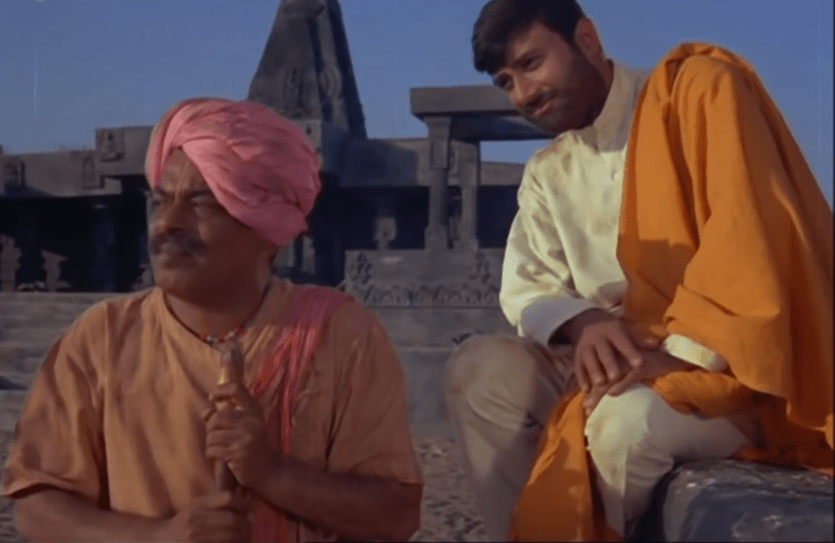
Guide – A Journey of Redemption and Reinvention Above all, “Guide” fearlessly escorts its audience down the path of soul-searching and the transformation of human desires. It delves into the core of human nature, exposing the unending thirst for warmth and love, often overshadowed by the relentless pursuit of material wealth in the world. As “Guide“ unravels, it leaves us with a resounding take-home message: The most profound wealth one can attain is not in riches but in the pursuit of truth, compassion, and the relentless quest for the human spirit’s warmth and love.
The Divine Music
‘Guide’ – A Symphony of Emotions and Transformation
The profound philosophical undertones of “Guide” find their fiery expression in the enchanting melodies composed by the legendary S.D. Burman. Coupled with the weighty verses crafted by Shailendra and brought to life by diverse voices, the music in this film is nothing short of a symphonic masterpiece. Each song is like a sonnet on celluloid, meticulously choreographed, and perfectly timed to convey the depths of human emotion.
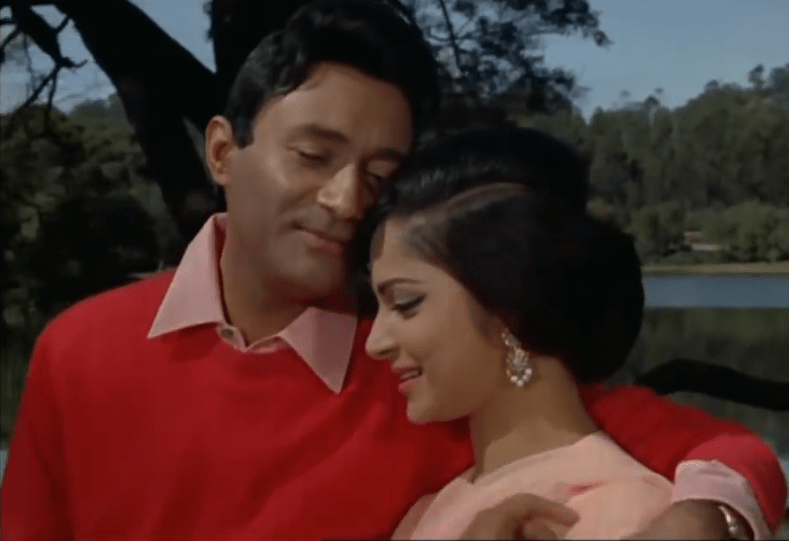
Whether it’s the soulful “Yahan Kaun Hai Tera Musafir” setting the stage for the story’s flashback, the heartwarming “Tere Mere Sapne” solidifying the love between Raju and Rosie, or “Aaj Phir Jeene Ki Tamanna Hai,” hinting at Rosie’s concealed desire to break free and showcase her talents to the world, every musical note resonates with meaning. “Gaata Rahe Mera Dil” captures the essence of Rosie’s professional success, while the melancholic brilliance of “Din Dhal Jaaye” describes the shifting dynamics between Raju and Rosie. And then there’s the magnum opus, “Kya Se Kya Ho Gaya,” an event rather than just a song, with its symbolic presentation linked to “Mo Se Chal” and the profound realization etched on Raju’s face. The music in ‘Guide’ is a relentless force that propels the narrative forward and elevates it to cinematic greatness.
The Final Act: A Philosophical Odyssey
In the closing chapters of “Guide,” the film plunges deep into the essence of life. When Raju is inadvertently mistaken for a saint and urged to observe a twelve-day fast to bring rain to the drought-stricken village, he embarks on a transformative journey. Initially hesitant, he ultimately embraces this spiritual path and redefines his desires and priorities. His sole aim becomes the welfare of the village and its people.
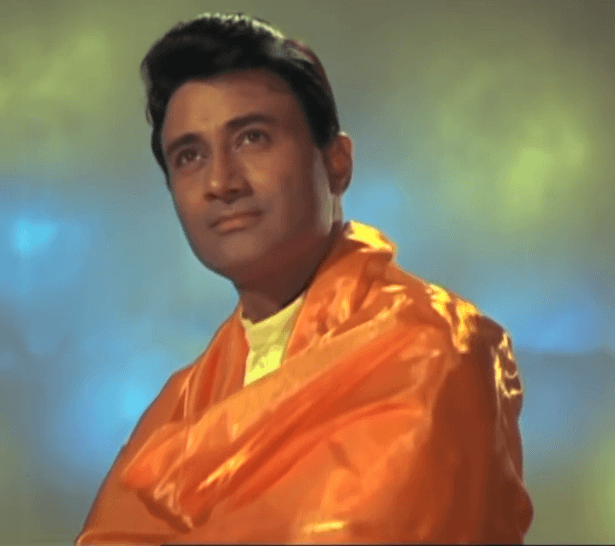
The culmination of the film, with Raju’s introspective dialogue, particularly when Rosie joins him and he utters the profound words, “Rosie aa gayi aur maa bhi-paani na barsa toh kya hoga…” represents one of the most extraordinary moments in mainstream Indian Cinema. This emotionally charged scene showcases Raju’s inner struggle and serves as the crowning jewel of a movie that artfully explores the depths of human philosophy.
Challenging Stereotypes: ‘Guide’ A Pioneer of Change
“Guide” was more than just philosophical, it boldly shattered stereotypes of its time. Rosie’s courageous departure from her unsupportive husband and her journey towards becoming a successful dancer defied societal expectations. The film also championed feminist ideals by showcasing Raju as Rosie’s manager, a rarity in mainstream cinema during that era.
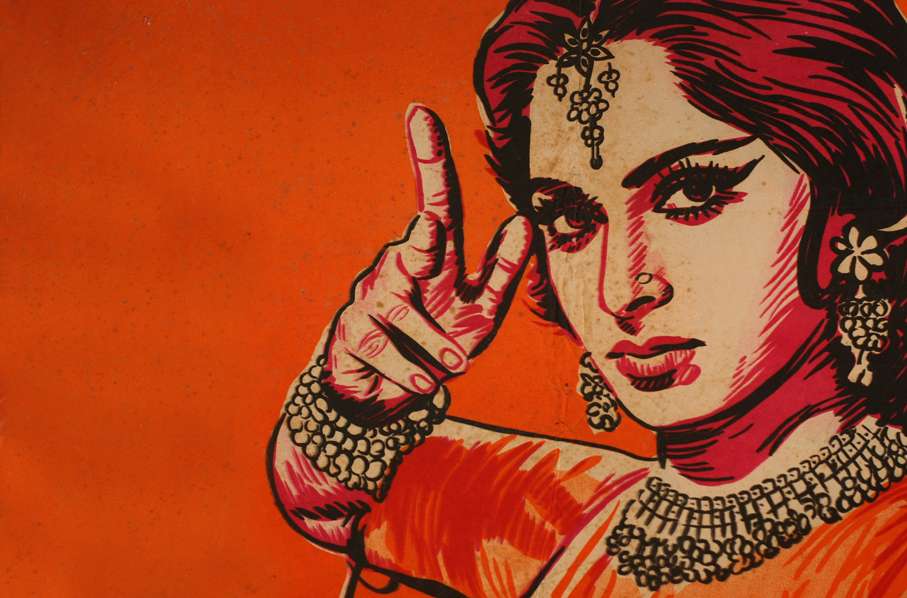
“Guide” broke new ground, addressing themes that few dared to explore in mainstream movies. Dev Anand’s visionary storytelling went beyond the ordinary, setting a precedent for discussing themes that were unconventional for their time, all while delivering a captivating and impactful narrative.
Also, read the review of the original novel, ‘The Guide’ (1958) by R.K. Narayan, here’s the link

Leave a Reply